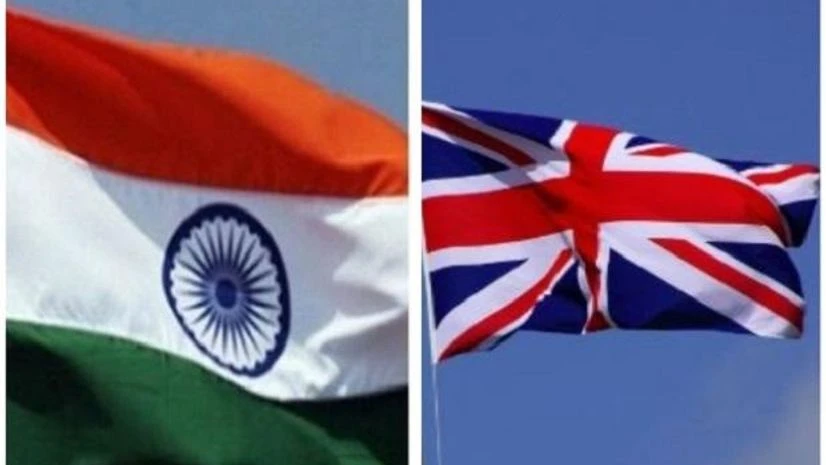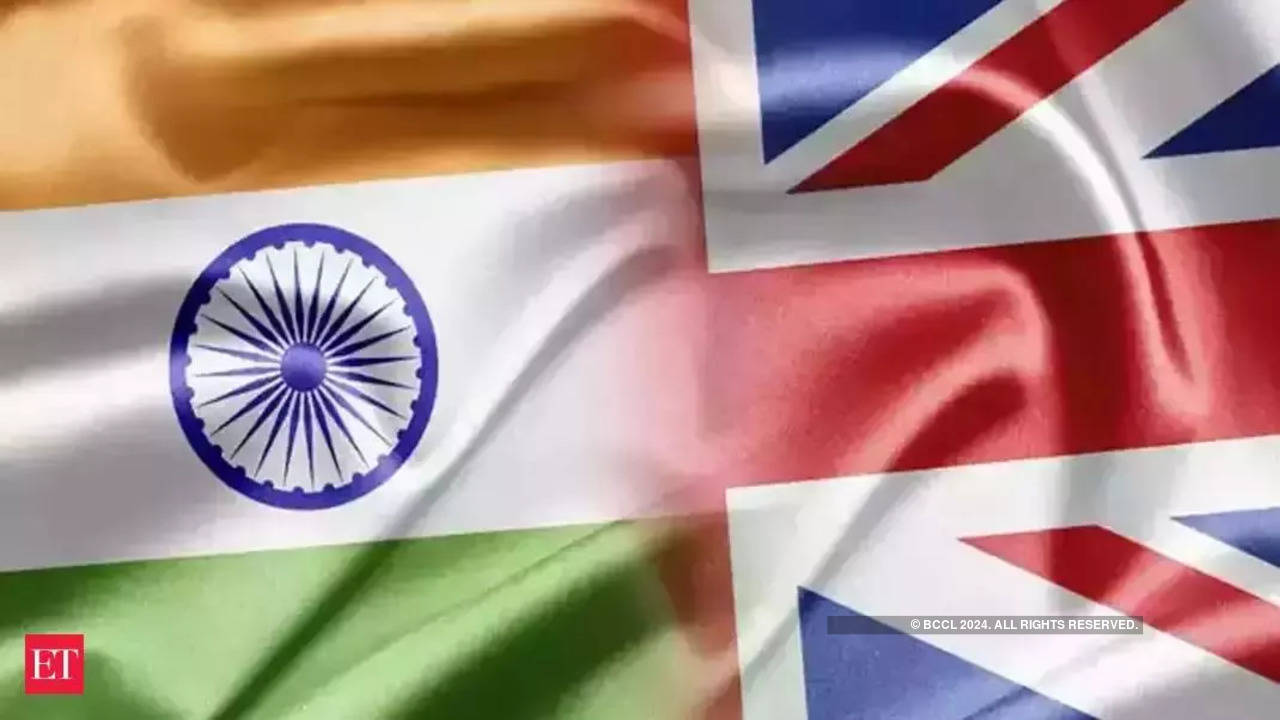India-UK likely to sign FTA deal by October end: Report

India-UK likely to sign FTA deal by October end: Report
India and the United Kingdom are reportedly preparing to sign a proposed free-trade agreement (FTA) deal by the end of October 2023. This agreement aims to strengthen economic ties between the two countries and facilitate trade across various sectors. While negotiations are ongoing, both sides are working to finalize the terms and conditions of the FTA, which could open up new opportunities for businesses and enhance economic cooperation between India and the UK.
British Prime Minister Rishi Sunak has reaffirmed his dedication to strengthening the relationship between India and the United Kingdom across multiple domains. One of the key aspects of this commitment is the pursuit of a Free Trade Agreement (FTA) that would foster even closer economic ties between the two nations.
The proposed FTA is viewed as a significant step towards enhancing economic cooperation, trade, and investment opportunities between India and the UK. By deepening their trade relationship, both countries aim to unlock new avenues for businesses, boost economic growth, and create jobs. Such an agreement can facilitate smoother trade flows by reducing trade barriers and tariffs, ultimately benefitting businesses and consumers in both India and the UK.
Negotiations for the FTA are currently underway, with both sides actively working to finalize the terms and conditions of the agreement. This process involves discussions on various aspects, including market access, intellectual property rights, and regulatory cooperation. The goal is to create a comprehensive and mutually beneficial trade agreement that reflects the shared interests and goals of India and the UK.
The FTA is expected to cover a wide range of sectors, including manufacturing, services, and technology. It could open up opportunities for British companies to access the Indian market and vice versa. This can lead to increased trade volumes and investment flows between the two countries, further solidifying their economic partnership.
In 2022, the bilateral trade between the United Kingdom and India amounted to an estimated £36 billion. This figure underscores the significant economic ties and commercial potential that exist between the two nations.
The recent round of negotiations for a free trade agreement (FTA) between the UK and India marks another step forward in their efforts to strengthen economic cooperation. A 30-member delegation from the UK engaged in discussions with their Indian counterparts to address the remaining issues in the negotiations. The objective is to resolve these outstanding matters swiftly, bringing the FTA negotiations to a successful conclusion.
The talks have been progressing steadily, with both countries having recently completed the 13th round of negotiations. The presence of a high-level team, led by India’s Commerce Secretary Sunil Barthwal, in London demonstrated the commitment of both sides to advancing these negotiations. Such efforts reflect the determination to create an FTA that benefits businesses, enhances trade flows, and boosts economic growth in both India and the UK.
The FTA discussions encompass various sectors, including manufacturing, services, and technology. By negotiating a comprehensive agreement that addresses a wide range of issues, both nations aim to create an FTA that aligns with their mutual interests and priorities.
As the negotiations continue, the prospect of a robust India-UK FTA holds the promise of expanding trade and investment opportunities. This agreement can unlock new markets, streamline trade processes, and promote closer economic integration between the two countries.
Moreover, the India-UK FTA signifies more than just an economic partnership. It represents a commitment to strengthen ties across different domains, including climate change, security, and healthcare. By fostering collaboration on global challenges and opportunities, India and the UK aim to build a comprehensive and multifaceted relationship.
The “rules of origin” provision in a free trade agreement (FTA) plays a crucial role in determining the origin of goods and preventing the dumping of products from third countries into the FTA partner’s market.
This provision stipulates that for a product to be considered as originating from an FTA country, a certain level of processing or value addition must take place within that country. This requirement ensures that products traded between FTA partners genuinely reflect the origin of the participating countries. It prevents the circumvention of trade rules, such as a country labeling goods as its own while merely importing them from third countries.
By enforcing rules of origin, FTAs help maintain fair competition and protect domestic industries from unfair trade practices. FTA countries are obligated to meet these requirements when exporting goods to their partner nations, ensuring that the benefits of the agreement are enjoyed by genuinely qualified products.
The negotiation of an investment treaty as a separate agreement between India and the UK highlights the comprehensive approach to their bilateral relationship. While FTAs focus on trade in goods and services, investment treaties address issues related to investments, including protections for investors and dispute resolution mechanisms. These agreements collectively aim to strengthen economic ties and provide a conducive environment for trade and investment.
The engagement between India and the UK in trade negotiations reflects their commitment to fostering deeper economic cooperation. These discussions are vital not only for expanding commercial ties but also for reinforcing their partnership across various sectors, including climate change, security, and healthcare.
The progress in trade talks and investment treaties demonstrates the dedication of both countries to create a robust framework for their bilateral relationship, unlocking new opportunities and ensuring that the benefits of economic collaboration extend to businesses and citizens in India and the UK.
The bilateral trade between India and the UK has witnessed a positive trend, with trade volume increasing from USD 17.5 billion in 2021-22 to USD 20.36 billion in 2022-23. This growth reflects the strengthening economic ties and commercial engagement between the two nations.)
Such an increase in trade volume is indicative of the growing partnership between India and the UK. Both countries have been actively working to enhance their economic relations, explore new trade opportunities, and promote mutual investments. Bilateral trade is a vital component of their broader cooperation, which extends to various sectors, including technology, finance, healthcare, and education.
The upward trajectory in trade figures highlights the potential for further expansion and collaboration in the future. It underscores the commitment of India and the UK to fostering economic growth and deepening their bilateral relationship.
As trade continues to flourish between the two countries, it is expected that both nations will explore additional avenues for cooperation, including the finalization of a free trade agreement (FTA) and an investment treaty. These agreements are likely to provide a more structured framework for trade and investment, further facilitating economic engagement.
Overall, the growth in bilateral trade between India and the UK is a positive sign of the increasing economic integration and partnership between the two nations, and it holds promise for continued collaboration and expansion in the coming years.




